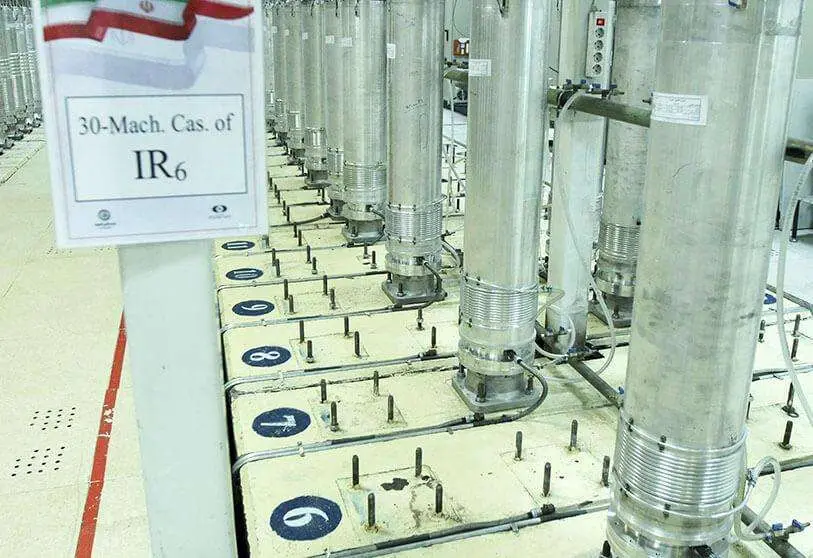Uncertainty over explosion near Iran's Natanz nuclear power plant

Just one day after the stalling of the seventh round of nuclear negotiations with Iran, an explosion was reported in Iran on Saturday 4 December in the town of Badrud in Isfahan province, just 20 kilometres from the Natanz nuclear facilities. Residents of Badrud heard the noise and saw a light showing that an object had just exploded in the sky," a witness told the Iranian news agency IRNA.
However, in the face of any rumours of possible "sabotage", the Iranian authorities have stated that it was a "drill" to test the plant's "rapid response" protection against air attack, as stated by the commander of the air defence in the region. The defence units "fired the missile to test the rapid reaction force", but, in the words of military spokesman Amir-Shahin Taghichani, "there is no cause for concern".
However, these official explanations are far from dispelling other assumptions, such as the hypothesis that it was an Israeli attack. According to this theory, far from being a military test, the explosion would be part of the Hebrew strategy to stop Iran's nuclear threats, and would be linked to the incidents that have taken place at the same facilities over the past two years. For their part, statements by senior Israeli officials have only exacerbated the confusion over the origin of the explosion. "Iran is a problem for the whole world, not just the state of Israel," Israeli Deputy Defence Minister Alon Schuster told an Israeli radio station when interviewed about Tel Aviv's possible involvement in the explosion.

According to an exclusive report in the US daily New York Post, Israel has carried out three major operations against Iranian nuclear sites in the past 18 months. These attacks were allegedly carried out by members of its intelligence agency, the Institute for Intelligence and Special Operations ('Mossad'), and are part of Israel's plan to confront Iranian violations of the nuclear deal signed in 2015.
According to the report, the first of the attacks took place in July 2020, and was reportedly related to the fires at the advanced centrifuge assembly plant, for which no explanation has yet been found. However, the incident that caused tensions between Tehran and Tel Aviv to rise the most was in April 2021, when several of the advanced centrifuges, IR-5 and IR-6, located in the Natanz underground facility, were affected by an explosion.
The Iranian authorities blamed the attack on Israel, calling the act "nuclear terrorism". Similarly, the New York Post reported that the offensive was carried out by Mossad agents who, after convincing several Israeli scientists of their links to international dissident groups, got officials to plant the explosives in the nuclear facilities.
In addition, these attacks also involved the use of a type of drone known as a "quadrocopter", which was brought into Iranian territory piece by piece, and which, according to this hypothesis, could be what the residents of Badrud saw explode last Saturday.

Generally speaking, since the revival of the Joint Comprehensive Plan of Action (JCPOA) negotiations, Israel's position has remained sceptical of Tehran's commitment to the nuclear deal. This has been reflected on more than one occasion, as evidenced by Israeli Prime Minister Naftali Bennett's statement a few weeks ago that 'even if there is a return to an agreement, Israel, of course, is not a party to the agreement, and is not bound by that agreement'.
Moreover, as yet another example of its strategy, significantly removed from Western JCPOA diplomacy, Tel Aviv approved last October a budget of some 5 billion Israeli shekels (more than 1.3 million euros) to prepare the army for a possible attack on the Iranian nuclear project. This fund would include the financing of various types of aircraft, intelligence-gathering drones and other special munitions to target heavily protected underground facilities at nuclear plants in the Persian territory. In fact, according to the report published by the New York Post, this kind of high-tech weaponry could have been part of the arsenal used in the attacks against Iran.










